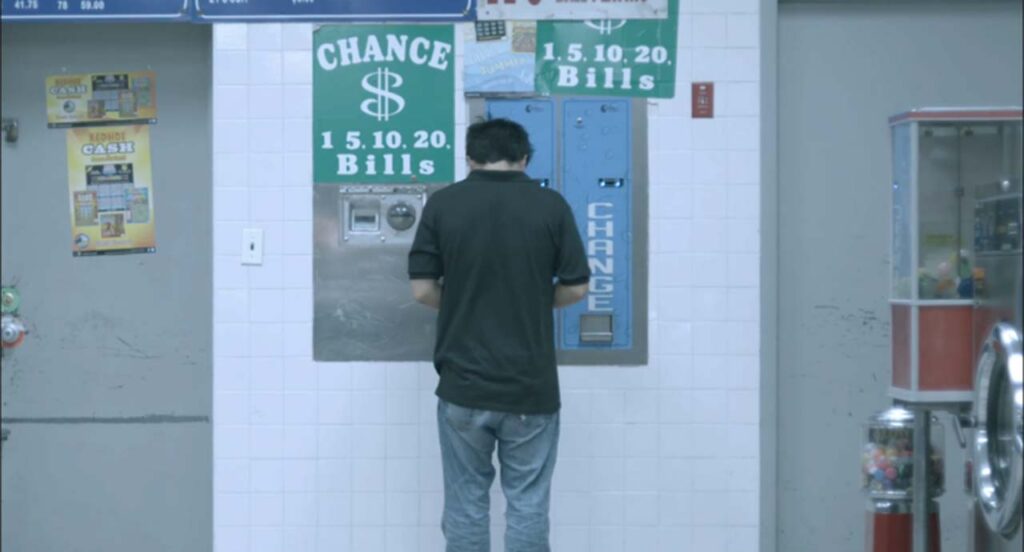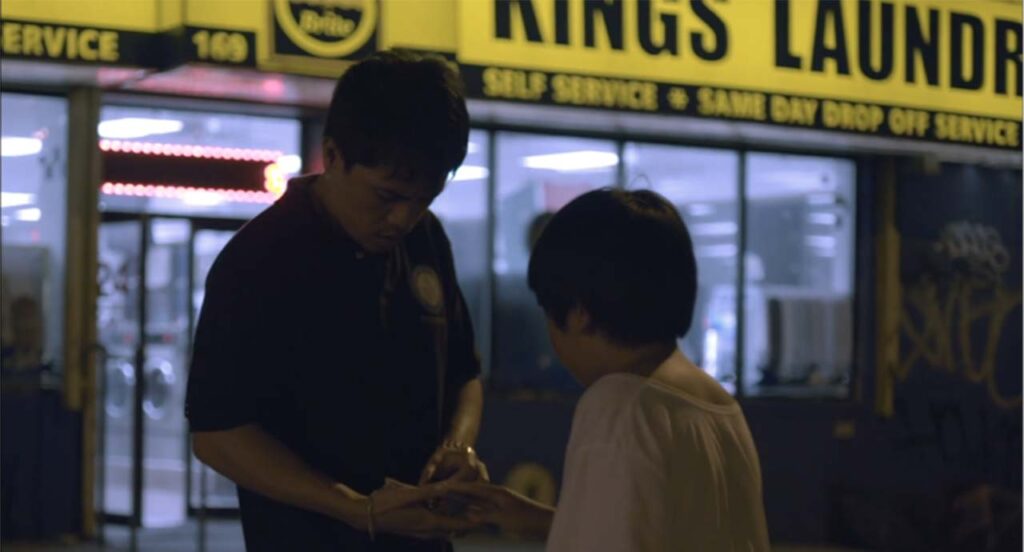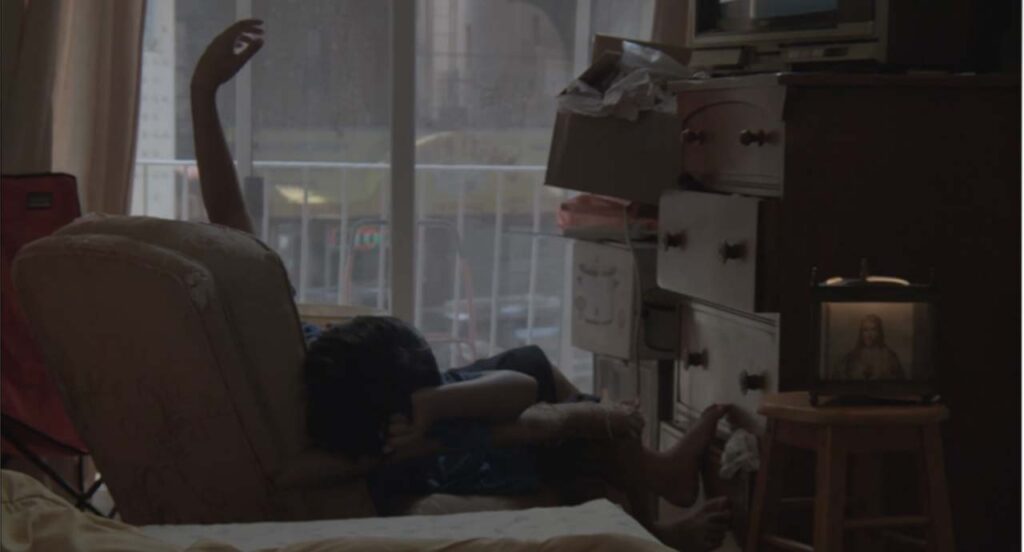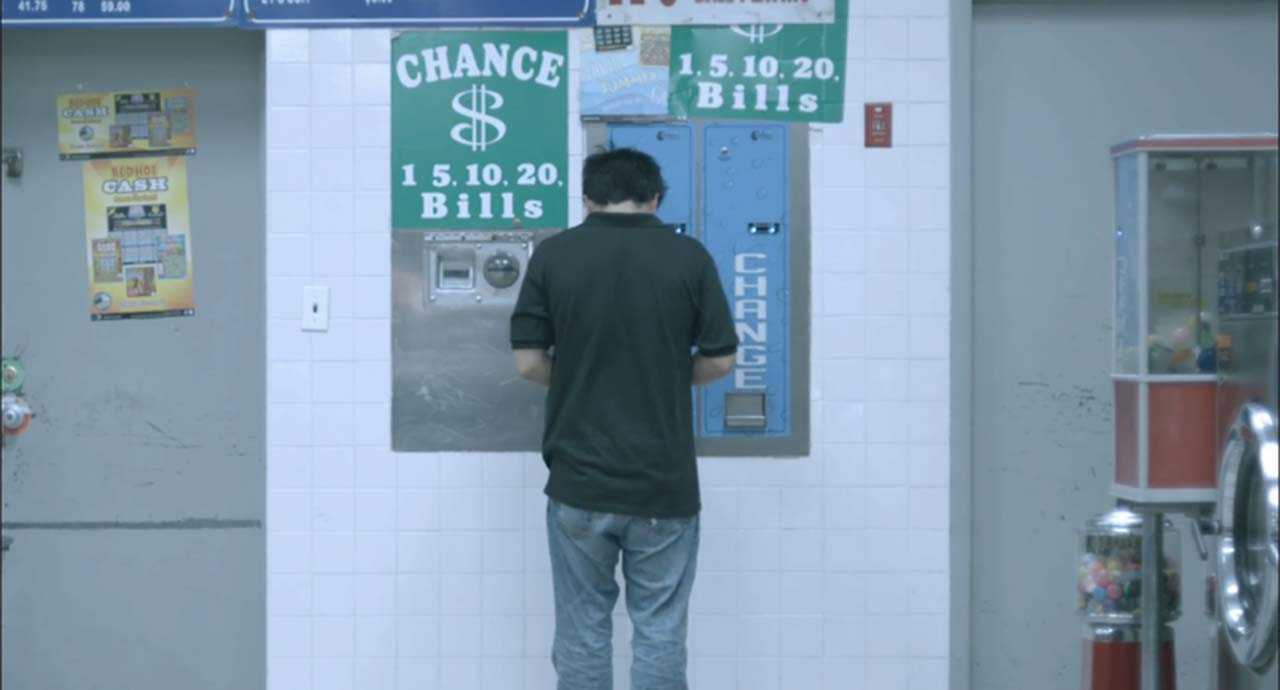A Shakespearean Approach to The Sound of Coins Hitting Brass

(Image Credit: The Sound of Coins Hitting Brass, dir. Andrew Stephen Lee, 2017)
We defy augury; there is special providence in the fall of a sparrow. Hamlet, V. 2. 214-215
Destined with an impossible task and a sealed fate, Hamlet’s response uses the religious imagery of a sparrow to suggest purity and sacredness to express the unique protection God gives to the sparrows. In Andrew Stephen Lee’s The Sound of Coins Hitting Brass, Lee uses the imagery of a sparrow to express the misfortunes his characters grapple with in their struggles as a Filipino immigrant trying to survive.
It seems that against all odds, the fate of struggling is sealed for his characters. Where one would expect opportunities in the promising land of the United States, the film starts with clear rejection for the father, contradicting the expectation one has. The film does not hold back in revealing the unpromising lives of the characters. The sparrows have already fallen before the film even started. The only way the characters can survive is to feed their own delusions that their dreams and desires are possible. Lee captures these delusions with sound. The father transfigures a coin exchange machine into a casino jackpot, deceiving the sound of coins hitting brass as the sound of fortunes in the casino. Even the son transfigures his father’s ordinary car, mimicking the roars of a race car to fuel his dream of a better life. The use of sounds envelops the audience and plays a pivotal role in the commentary of the characters, that it almost becomes a character too. The usage of sound is perhaps most interesting when one considers sound as an element of film that is invisible, but ever-present and affecting one’s experience in the cinema. Is that not the role of fate too? Fate acts on individuals without our awareness, and we seem to lack any agency over our fate.
Perhaps, that is the experience of an immigrant. An immigrant subscribes to the hope, no matter its delusional nature, in order to survive and hope for a better life. The coin exchange machine is bolded with two words: ‘Chance’ and ‘Change’. This ingenious use of symbolism suggests the two ideals that the immigrants are fighting for: opportunity and a better life. However, the use of similar shots in the opening and closing sequence around the sound of coins implies that nothing has changed. Even with the chance of money from the grandmother, the chance is misused rather than being used as a tool for realistic change. Even the grandmother is victim to these delusions. She hopes to brighten her skin to belong with the Western ideal of ‘Julia Roberts’, but this is a futile hope when one considers the impossibility of changing one’s skin color completely. Calling the cream “medicine” is akin to suggesting that there is something diseased about the immigrant that has to be changed.

A repeated theme in many Shakespearean plays is that of betrayal. Shakespeare highlights the prevalence of betrayal in our lives and uses his characters’ turmoils as a way of showing how we respond to betrayal universally. In Lee’s film, betrayal works in several layers: the grandson betraying his grandmother by stealing her money, the father betraying his family by throwing away his chances at a better life, and most subtly, the betrayal of self. Not only do the characters betrayal themselves by submitting willingly to delusions, but also betrays their roots, and by extension, identity. The grandson cannot speak Tagalog and the language of the film is English, reverting to Tagalog only at the climax of the film to express conflict. In all that the characters have betrayed, why should they receive special providence in their fall still?

Perhaps Shakespeare sums it up best: “We defy augury”. Even against omens, the strength of a character in resisting these misfortunes brings sincerity to their struggle and hopes. Similarly in Lee’s film, his characters are fighting against all that an immigrant life offers: disappointment and futile pursuits. Yet, there is courage and beauty commendable about their unfailing hope that life gets better: the fortunes of coins falling, better skin, or owning a race car. The fall of these characters seem almost too pitiful and unjustified. It is through this pathos for the characters that we allow ourselves to sympathize with their struggles – no matter how flawed their pursuits may be.
Yet at the same time, this experience is similar to our own as a Southeast Asian region. When most of the states gained independence, critics perceived our economical challenges as augury that we would not survive. Against all odds, we did. There is something very Southeast Asian about the characters’ struggles that alludes to the spirit of a region: the spirit that no matter how ill-fated our future may seem, it is in the courage to fight that there is hope and the possibility of change and chance. Even as Lee’s characters are seemingly deluded, it does not discount their Dream completely. Their vision was never flawed; only the path they took to attain their goals.

There is courage, and through it, beauty, in the declarative “We defy augury” – the same courage exemplified by the characters in Lee’s film. Perhaps there is special providence because we want to believe in a hope that someone out there will catch us when we fall. Perhaps there is special providence because we are deserving of it. Yet, none of these matter to immigrants struggling to survive. There is this powerful image of a portrait of God in the corner of a single shot in Lee’s film that uses the smallness of the portrait in the frame to suggest that like the smallness, it seems that immigrants feel small and powerless against their colossal struggles but it is in trusting the providence offered to our struggles, there could be a way out for survival. As the son of an immigrant to Singapore, this message deeply resonates with me and is one that Lee captures truthfully. It is an impact that echoes the sound of coins hitting brass: seemingly insignificant but deafening and declarative all the same.


